Here are the top 10 best aeronautical engineering schools in the Philippines based on the 5-year licensure board examination passing rate from 2016 to 2021.
Aeronautical Engineering is one of the most sought-after courses in the Philippines. If you’re thinking about studying Aeronautical Engineering, then you have come to the right place!
This article will discuss the top 10 best aeronautical engineering schools in the Philippines.
If you are interested in pursuing a career in aeronautical engineering, be sure to check out these schools.
They offer excellent programs that will prepare you for a successful career in this field.

We have compiled five-year historical data from Philippine Professional Regulation Commission (PRC).
The performance of aeronautical engineering schools in the Philippines was taken from 2016 to 2021’s Aeronautical Engineer Licensure Examination.
Top 10 Best Aeronautical Engineering Schools in the Philippines
Based on the 5-year passing rate data, from 2016 to 2021, here are the best aeronautical engineering schools in the Philippines.
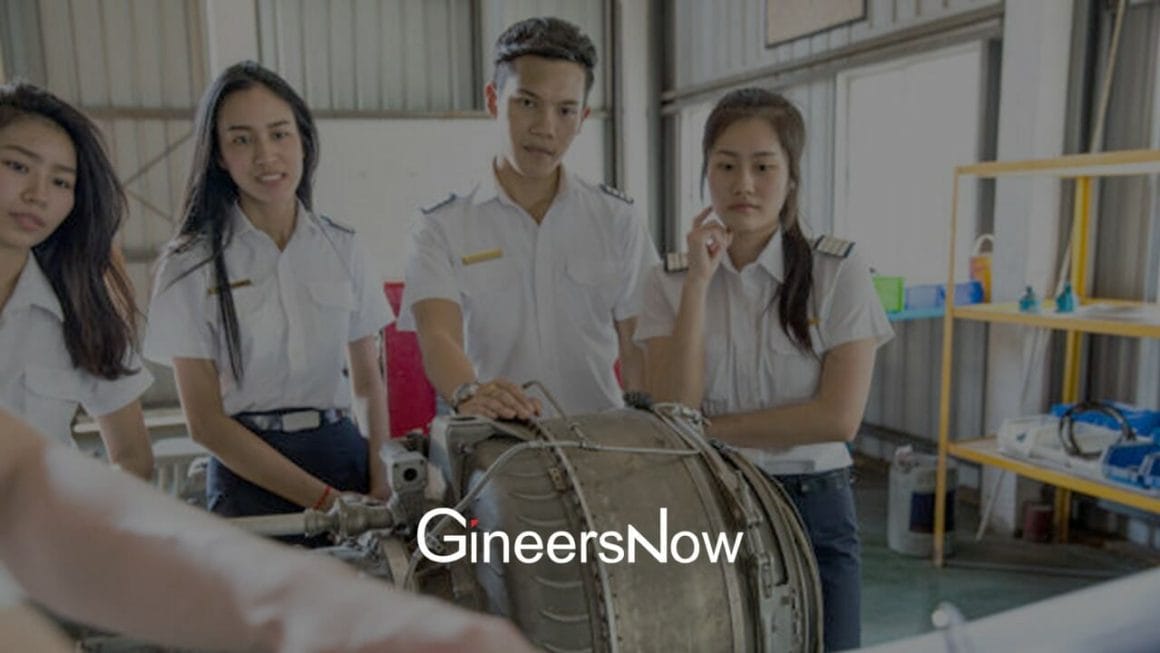
1. Philippine State College of Aeronautics, Pasay (PhilSCA Flying School)
PhilSCA Flying School Pasay campus is one of the best aeronautical engineering schools in the Philippines.
The data includes first-time board exam takers. We have excluded aeronautical engineering students who were repeaters.
Year-on-year aeronautical engineer licensure examination performance of Philippine State College of Aeronautics (PhilSCA Flying School).
Five-Year Passing Rate: 80.00%
2016 Passing Rate: 77.78%
2017 Passing Rate: 87.63%
2018 Passing Rate: 78.87%
2019 Passing Rate: 88.18%
2021 Passing Rate: 70.00%

About
Former names ofPhilSCA include Basa Air Base Community College (June 1969 to January 26, 1977), Philippine Air Force College of Aeronautics (January 1977 to June 1992), and Philippine State College of Aeronautics (June 1992 – Present).
With its main campus located at Villamor Air Base in Pasay City, Metro Manila, the Philippine Air Force College of Aeronautics was established by Presidential Decree No. 1078, which was signed by President Ferdinand Marcos, Sr. in 1977.
Despite having the status of a state college, its charter did not allow for government funding because it was regarded as a non-profit, non-stock educational institution.
Additional campuses were established at Sangley Air Base, Fernando Air Base, and Mactan Air Base in addition to Villamor and Basa Air Bases.
During this time, it was planned by Philippine Air Force authorities for the Philippine Air Force Academy to combine the Philippine Air Force Flying School and the Philippine Air Force Regular Officer Procurement Program.
This will allow to address the Philippine Air Force’s issue with the training and procurement of its officer pilots.

Republic Act No. 7605, which changes the Philippine Air Force College of Aeronautics into the Philippine State College of Aeronautics, was authorized by President Corazon C. Aquino.
The establishment of its own flight school to prepare students for private pilot and commercial pilot licenses was approved by the board of trustees in 1994.
A Tampico STB9-C aircraft (RP 2200) donated by Senator Raul Roco from his national development fund served as the organization’s first trainer aircraft in 1997. On June 3, 1992, a second Tampico STB9-C aircraft (RP 2244) was purchased for P10 million from the PhilSCA Development Fund.
Contact Details
Website: https://www.philsca.edu.ph/
Address: Villamor, Pasay City
Mobile: 0956-433-2878 and 0960-562-9180
Email: [email protected]

2. Holy Angel University (HAU)
HAU is one of the best aeronautical engineering schools in the Philippines.
The data includes first-time board exam takers. We have excluded aeronautical engineering students who were repeaters.
Year-on-year aeronautical engineer licensure examination performance of Holy Angel University.
Five-Year Passing Rate: 73%
2016 Passing Rate: 100%
2017 Passing Rate: 91.30%
2018 Passing Rate: 75.00%
2019 Passing Rate: 64.29%
2021 Passing Rate: 34.69%

About
Holy Angel Academy (HAA) welcomed a small group of 78 high school students in the Holy Rosary Parish Convent in June 1933. Its main objective was to provide secondary Catholic education, which the community believed was still lacking.
It was established as a non-stock, nonprofit corporation with a focus on community service.
The primary school division was established in 1960.
There were also more collegiate courses available, including two-year pre-engineering courses in 1962 and one-year and two-year secretarial courses in 1961.
Later, it was expanded to include the full Civil Engineering (August 1968), Electrical Engineering (September 1969), Mechanical Engineering (September 1969), and Management and Industrial Engineering (September 1969) curricula (March 1986).
The College of Hospitality Management and the College of Criminal Justice Education and Forensics were established in the academic year 2009–2010, and new programs like the BS in Accounting Technology, BS in Aeronautical Engineering, BSBA in Legal Management, and Master in Special Education were also made available.
Another notable event was CHED’s recognition of the Hotel and Restaurant Management program as the first Center of Development in the nation.

The AJA Registrars awarded the International Organization for Standardization (ISO) 9001:2015 accreditation in Quality Management Systems to HAU during the first quarter of 2019.
The People Management Association of the Philippines’ 2019 Employer of the Year Award, which is the most coveted honor granted by organizations in the Luzon Region, was given to HAU in May 2019.
Holy Angel University is dedicated to the total development of students through instruction, research, extension, and administrative services.
This will uphold the university’s Catholic foundation and are in accordance with international standards of quality.
Senior management at the university constantly evaluates and validates all programs, services, and procedures in order to enhance its quality management system.
The entire organization and other interested parties are required to communicate, implement, and support this quality management system.

Today, Holy Angel University provides state-of-the-art academic programs ranging from Basic Education to Graduate School, as well as a variety of grants and scholarships for qualified and deserving applicants.
Every Angelite at HAU continues to enjoy an exceptional campus experience in its ninth decade.
Contact Details
Website: https://www.hau.edu.ph/
Address: #1 Holy Angel St, Angeles, 2009 Pampanga
09190873329 (SMART) & 09176320339 (GLOBE)
Email: [email protected]

3. C.A.T.S Aero College (Cebu Aeronautical Technical School)
CATS Aero Collete is one of the best aeronautical engineering schools in the Philippines.
The data includes first-time board exam takers. We have excluded aeronautical engineering students who were repeaters.
Year-on-year aeronautical engineer licensure examination performance of CATS Aero College.
Five-Year Passing Rate: 64.08%
2016 Passing Rate: 70.00%
2017 Passing Rate: 50.00%
2018 Passing Rate: 32.00%
2019 Passing Rate: 68.42%
2021 Passing Rate: 100.00%

About
The 2-year and 4-year degree programs offered by C.A.T.S Aero College, formerly known as Cebu Aeronautical Technical School, in Lahug, Cebu City, are designed to prepare students for professions in the aviation sector.
Since the program’s commencement, graduates of C.A.T.S. have gone on to distinguish themselves as leaders both within and outside the aeronautical industry.
The second aviation school to be founded in the nation, Cebu Aeronautical can trace its beginnings all the way back to February 24, 1953, making it the oldest aviation school outside of Manila.

It began operating at the M. O. Ponce Building, which was situated along what is now M. J. Cuenco Avenue.
After the legendary Mactan Airport builder, the late P. J. Kiener finished building its hangar and relocated to Lahug Airport in the middle of the 1960s.
It relocated to its current location in 1981, where it received recognition for its two baccalaureate degrees as well as for its airline management courses from CHED in 2005.
It originally only offered two courses but has now grown to five, all of which are approved by CHED, TESDA, and CAAP (formerly ATO).
The school has produced several hundred graduates who are currently working for reputable aviation corporations all around the world throughout its 60 years of operation.

At this time, the institution provides the following associate’s and bachelor’s degree programs:
- Bachelor of Science in Aeronautical Engineering (5 Years)
- Bachelor of Science in Aircraft Maintenance Technology (4 Years)
- Bachelor of Science in Airline Management (4 Years)
- Associate in Aircraft Maintenance Technology (2 Years)
- Associate in Airline Management (2 Years)
Contact Details
Website: https://cats.edu.ph/
Address: Salinas St. 6000 Cebu City, Philippines
Facebook: Click here
Tel: (032) 233 0097
Email: [email protected]

4. FEATI University
FEATI University is one of the best aeronautical engineering schools in the Philippines.
The data includes first-time board exam takers. We have excluded aeronautical engineering students who were repeaters.
Year-on-year aeronautical engineer licensure examination performance of FEATI University.
Five-Year Passing Rate: 58.28%
2016 Passing Rate: 37.50%
2017 Passing Rate: 70.00%
2018 Passing Rate: 69.23%
2019 Passing Rate: 80.00%
2021 Passing Rate: 34.69%

About
A flying school and the first Filipino-owned international airline are the foundations of the illustrious history of FEATI University.
Aviation-related degrees are currently available under the headings of Aeronautical Engineering and Aircraft Maintenance Technology.
The four-year Bachelor of Science in Aeronautical Engineering program prepares graduates for careers in the following five main areas of the field:
- Aircraft Operations
- Aircraft Design and Manufacturing
- Aircraft Maintenance
- Research and Development
- Aeronautical Engineering Education
The University built a reputation for distinction following World War II by becoming the first to offer aviation programs in the mid-1940s.
The Aeronautical Engineering Program of FEATI is presently focused on the development of hybrid composite materials for aerospace applications after it developed its own airworthy aircraft back then using local materials.
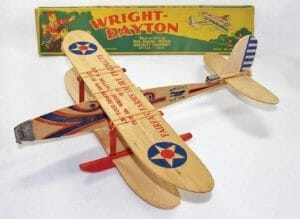
With the assistance of the public and commercial sectors, this is to be accomplished through the development of capacity and skills.
As the university approaches its 75th anniversary, the department also intends to lead the nation in the growth of the aerospace industry by utilizing cutting-edge techniques and technology in aircraft design, maintenance, training, and production.
The Aeronautical Engineering Department employs highly skilled specialists with extensive experience in their areas of expertise.
The Department helps students grow and gain confidence by bringing alumni and upperclassmen together.
They work together and take part in mentorship activities like seminar workshops, symposia, and convocations.
This is done with the help of the Department’s teachers and staff.
Along with having qualified mentors, the Department of Aeronautical Engineering & Aircraft Maintenance Technology is proud of its robust research and development (R&D) program.
This inspires students to push the boundaries of their creativity and make the most of their R&D potential.

The Federal Aviation Administration’s (FAA) and the European Aviation Safety Agency’s (EASA) guidelines, regulations, and standards are reflected in the Aeronautical Engineering and Aircraft Maintenance Technology programs’ curricula and instruction (EASA).
These also make FEATI the only university to offer programs that are aligned with the FAA and EASA.
FEATI University department of aeronautical engineering and aircraft maintenance technology has partnered with the following companies:
- PAL Express
- Cebu Pacific
- SIA Engineering Philippines
- Aviation Partnership Philippines (A+)
- Civil Aviation Authority of the Philippines (CAAP)
- Philippine Airport Ground Support Solutions, Inc. (PAGSS)
- Philippine Airlines (PAL)
- Lufthansa Technik Philippines (LTP)
- Skyjet
- Fliteline
- Philippine Air Force
- Philippine Navy
- Air Ads
Contact Details
Website: http://www.featiu.edu.ph/
Address: Helios St. Sta. Cruz, Manila City
Tel: +63 966 463 5882 to 85 or +63 947 818 7715
Email: [email protected]
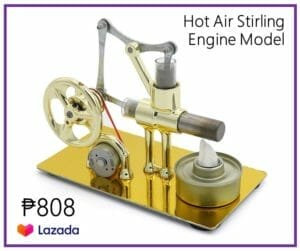
5. PATTS College of Aeronautics
PATTS College of Aeronautics is one of the best aeronautical engineering schools in the Philippines.
The data includes first-time board exam takers. We have excluded aeronautical engineering students who were repeaters.
Year-on-year aeronautical engineer licensure examination performance of PATTS College of Aeronautics.
Five-Year Passing Rate: 54.26%
2016 Passing Rate: 54.89%
2017 Passing Rate: 62.07%
2018 Passing Rate: 48.96%
2019 Passing Rate: 58.99%
2021 Passing Rate: 46.38%

About
The Aeronautical Engineering of PATTS College of Aeronautics aims to make Filipino students adaptive to a range of complexities in the aviation sector. Graduates of this profession are actively employed in the tasks of
- Planning
- Designing
- Analyzing structures
- Building and repairing
- Supervising
- Operating advanced facilities
- Systems that are required for the development of the industry

Graduates of this program are currently working for various aerospace and aeronautical companies which include:
- Civil aviation authorities
- Aircraft operators
- Maintenance, repair, and overhaul companies,
- Aviation organizations (domestic and international).
Contact Details
Website: https://www.patts.edu.ph/
Lombos Avenue, San Isidro, Sucat, Parañaque City 1700
Tel: +632 8258823
Email: [email protected]

6. WCC Aeronautical and Technological College
WCC Aeronautical and Technological College is one of the best aeronautical engineering schools in the Philippines.
The data includes first-time board exam takers. We have excluded aeronautical engineering students who were repeaters.
Year-on-year aeronautical engineer licensure examination performance of WCC Aeronautical and Technological College.
Five-Year Passing Rate: 41.33%
2016 Passing Rate: 40.00%
2017 Passing Rate: 0%
2018 Passing Rate: 66.67%
2019 Passing Rate: 80.00%
2021 Passing Rate: 20.00%

About
One of the top aviation businesses in Asia, WCC Aviation specializes in offering pilot training, cabin crew courses (flight attendant courses), and programs in aircraft maintenance technology.
It is situated near the Binalonan Airfield in the Philippines, around 2.5 to 3 hours’ drive from Metro Manila.
The college was established in 2005 with the goal of becoming a community of aviation professionals as well as a comprehensive and outstanding aviation school.
WCC an Approved Training Organization Certificate (ATOC) for their Diploma in Aircraft Maintenance Technology (AMT) program and is approved by the Civil Aviation Authority of the Philippines (CAAP) to offer pilot courses.
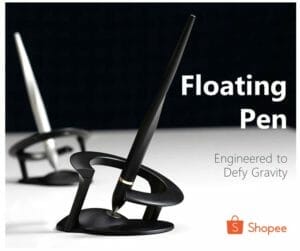
The aviation school also increased the number of programs it offers:
- BS in Aviation
- BS in Aeronautical Engineering
- BS in Tourism
- Senior High School ABM
- STEM track with an emphasis on the aviation sector
Contact Details
Website: https://www.wccaviation.com/
Address: 461 William Shaw St. Grace Park Caloocan City PH 1406
Mobile: 0945 785 1345
Email: [email protected]

7. MATS College of Technology
MATS Collete of Technology is one of the best aeronautical engineering schools in the Philippines.
The data includes first-time board exam takers. We have excluded aeronautical engineering students who were repeaters.
Year-on-year aeronautical engineer licensure examination performance of Mindanao Aeronautical Technical School (MATS College of Technology).
Five-Year Passing Rate: 31.04%
2016 Passing Rate: 35.50%
2017 Passing Rate: 35.71%
2018 Passing Rate: 11.76%
2019 Passing Rate: 55.56%
2021 Passing Rate: 16.67%

About
MATS College of Technology aviation offers programs leading to bachelor’s degrees in aeronautical engineering, aircraft maintenance technology, and a two-year course in aircraft maintenance technology.
BS in Aeronautical Engineering
The College of Aviation’s Bachelor of Science in Aeronautical Engineering (BS AeE) program is a four-year degree program.
It focuses on the application of fundamental scientific principles along with advanced computational tools and equipment.
This will ensure aviation safety and address challenging aeronautical engineering issues related to aircraft design and manufacture, maintenance and operation, research, and development.
According to the educational goals of the Bachelor of Science in Aeronautical Engineering (BS AeE) curriculum, aeronautical engineers must have a background in mathematics, calculus-based physics, and related sciences.

Graduates of the program must be able to plan and design aircraft systems and components or processes that meet desired needs within realistic constraints.
It should be in accordance with standards and maintain aircraft structures using accepted engineering practices.
Likewise, it should abide by the high standard of using techniques, and contemporary engineering tools required for aeronautical engineering development.
Furthermore, it should apply newly acquired knowledge and skills for the advancement of our country.
BS in Aircraft Maintenance Technology
Students who complete the Bachelor of Science in Airplanes Maintenance Technology degree will have knowledge and abilities in the maintenance of aircraft.
Through this curriculum, students learn how to build, examine, operate, maintain, and repair the systems, power plants, and other structural components of aircraft and other aerospace vehicles.

Two-Year Aircraft Maintenance
The two-year, fast-track Aviation Technician Course is intended to prepare students for a variety of skill-oriented positions in the highly specialized field of aircraft repair.
High school graduates who have an interest in mechanics are required to enroll in this course.
Contact Details
Website: https://www.matscollegeoftechnology.com/
Address: 3JPJ+M67, R. Castillo St, Agdao, Davao City, 8000 Davao del Sur
Tel: 082 224 7928
Email: [email protected]

8. Aeronautical Academy of the Philippines
AAP is one of the best aeronautical engineering schools in the Philippines.
The data includes first-time board exam takers. We have excluded aeronautical engineering students who were repeaters.
Year-on-year aeronautical engineer licensure examination performance of Aeronautical Academy of the Philippines (AAP).
Five-Year Passing Rate: 37.33%
2016 Passing Rate: 20.00%
2017 Passing Rate: 0%
2018 Passing Rate: 0%
2019 Passing Rate: 66.67%
2021 Passing Rate: 100.00%

About
Located in Camarines Sur, Aeronautical Academy of the Philippines (AAP) is the sole aeronautical school in the Bicol region.
The academy currently provides associate, undergraduate, and senior high school programs in the academic track GAS. AAP now offers
- 5-year undergraduate programs in aeronautical engineering
- 4-year undergraduate programs in aircraft maintenance technology and avionics technology
- 2-year associate degrees in these fields
The academy started providing a tourism management undergraduate degree in 2018.
Contact Details
Website: None
Facebook page: click here
Address: Baras, Canaman, Camarines Sur
Mobile: 0912-7376304 / 0975-1784894
Email: [email protected]

9. University of Perpetual Help System Dalta, Las Pinas
University of Perpetual Help System Dalta is one of the best aeronautical engineering schools in the Philippines.
The data includes first-time board exam takers. We have excluded aeronautical engineering students who were repeaters.
Year-on-year aeronautical engineer licensure examination performance of University of Perpetual Help System Dalta.
Five-Year Passing Rate: 20.00%
2016 Passing Rate: 0%
2017 Passing Rate: 0%
2018 Passing Rate: 25.00%
2019 Passing Rate: 50.00%
2021 Passing Rate: 25.00%

About
For the past 45 years, the University of Perpetual Help has been offering high-quality education by steadily improving its academic programs and laying the groundwork for tomorrow’s leaders.
Students are immersed in a setting that supports mastery of their chosen fields.
As a result, the University may be proud of alumni who perform well in their chosen fields of study and employment.
The university has received multiple accolades from the Philippine Association of Colleges and Universities Commission on Accreditation (PACUCOA).
This is in acknowledgment of its excellence in education as evidence of Perpetual Help’s investments in standardizing and internationalizing its curricula.
We educate the science, the art, and the business of aviation and avionics at the School of Aviation.

Through thorough training, state-of-the-art facilities, and highly skilled instructors, we equip students to become prepared airmen to assume leadership roles, notably in the fields of aircraft research, development, production, maintenance, operation, and aviation education.
The university’s training programs abide by all guidelines established by the following organizations:
- Philippine Civil Aviation Authority
- International Engineering and Technological Standards Regulations in Aviation and Air Transportation Office of the Philippines.

Aviation Programs Offered
- Aircraft Maintenance Technology
- Aviation Electronics Technology
- BS in Aircraft Maintenance Technology
- BS in Aviation Electronics Technology
- Commercial Pilot License Course
- Flight Instructor Course
- Private Pilot License Course
Contact Details
Website: https://perpetualdalta.edu.ph/las-pinas/
Address: Alabang-Zapote Avenue, Pamplona 3, Las Piñas City
Tel: (02) 8872-7041
Email: [email protected]

10. Philippine State College of Aeronautics, Mactan (PhilSCA Flying School Lapu-Lapu)
PhilSCA Flying School Mactan is one of the best aeronautical engineering schools in the Philippines.
The data includes first-time board exam takers. We have excluded aeronautical engineering students who were repeaters.
Year-on-year aeronautical engineer licensure examination performance of PhilSCA Flying School (Lapu-Lapu)
Five-Year Passing Rate: 20%
2016 Passing Rate: 0%
2017 Passing Rate: 0%
2018 Passing Rate: 0%
2019 Passing Rate: 100%
2021 Passing Rate: 0%

About
PhilSCA Mactan is a branch of PhilSCA Pasay which is currently the top 1 Aeronautical school in the Philippines.
Contact Details
Website: https://www.philsca.edu.ph/
Mactan Airbase Lapu-Lapu City Cebu
Tel: (032) 340-8046
Email: [email protected]
Summary Data: Top 10 Best Aeronautical Engineering Schools in the Philippines
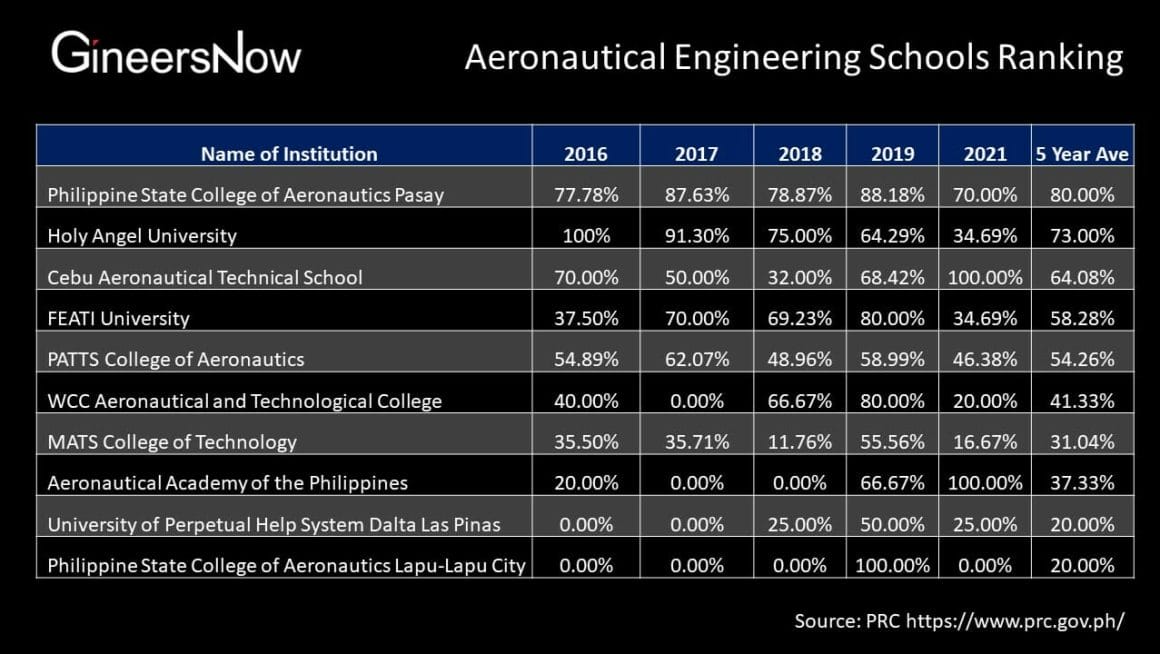
Aeronautical engineering in a nutshell
Aeronautical engineering is the process of designing and manufacturing aircraft and spacecraft. It is a very demanding field that requires a high level of education and experience.
What is Aeronautical Engineering?
Aeronautical engineering is the process of designing and testing aircraft. It is a subsection of aerospace engineering, which is the broader study of how objects fly in space.
Aeronautical engineers must have a strong understanding of physics and mathematics in order to design planes that are both safe and effective. They also need to be familiar with aviation regulations and the principles of aerodynamics.

Why take aeronautical engineering?
Aeronautical engineering is a field of study that deals with the design and manufacture of aircrafts.
It is a very challenging field, but it can be very rewarding too. If you are thinking about studying aeronautical engineering, here are some reasons why you should consider it:
- Aeronautical engineering is a challenging field. It requires a lot of hard work and dedication, but it can be very rewarding too.
- There are many exciting opportunities in this field. You can work for major airlines or aircraft manufacturers, or you could even start your own business.
- Aeronautical engineering is a growing field. The demand for qualified engineers is increasing every year, so there are plenty of job opportunities available.
- If you want to travel the world, this is the perfect career for you!

Is aeronautical engineering hard?
Aeronautical engineering can be a difficult field to study. There is a lot of math and physics required, and the material can be challenging to learn.
However, with hard work and dedication, it is possible to become a successful aeronautical engineer.
Those who are interested in this field should make sure they have strong math and science skills, and they should also be prepared for a lot of hard work.

The career path of aeronautical engineers
Aeronautical engineering is a challenging and rewarding career field. Aeronautical engineers design, build and test aircraft.
They must have a strong understanding of physics and mathematics in order to create safe and efficient aircraft.
Aeronautical engineers typically start their careers as junior engineers, working under the guidance of more experienced professionals.
With experience, they may move into lead engineer positions or management roles. Some aeronautical engineers may also become pilots or flight instructors.

Salary of aeronautical engineers
Salary of Aeronautical Engineers Abroad (OFW)
- Entry level or fresh graduate salary: Php 3.3 million / year
- Average salary of aeronautical engineers: Php 4.8 million / year
- With extensive experience salary: Php 6.6 million / year
Salary of Aeronautical Engineers in the Philippines
- Entry level or fresh graduate salary: Php 240,000 / year
- Average salary of aeronautical engineers: Php 350,000 million / year
- With extensive experience salary: Php 612,000+ / year

Aeronautical engineers design, build and test aircraft.
They may also work on the development of spacecraft, drones, missiles, and other aerial vehicles.
In order to become an aeronautical engineer, you’ll need a degree in aerospace engineering or a related field.
According to Payscale.com, the average salary for Filipino aeronautical engineers who are working abroad as OFW is Php 4.8 million ($87,000) per year.
Entry-level Filipino engineers earn around Php 3.3 million ($60,000) per year, while those with more experience can earn up to Php 6.6 million ($120,000) annually.
If the aeronautical engineer is working in the Philippines, the salary is between Php 316,000 to Php 612,000.

How much is the tuition fee of an aeronautical engineering school in the Philippines?
The tuition fee for an aeronautical engineering school in the Philippines can range from 100,000 pesos to 200,000 pesos per academic year.
This may seem like a lot of money, but when you consider the high quality of education that you will receive in return, the investment is definitely worth it.
The faculty at these schools are highly experienced and have worked in the aviation industry themselves.
They will be able to teach you everything you need to know to build a successful career in this field.
In addition, many of these schools offer scholarships and financial aid programs that can make paying for school more affordable.
So if you are interested in studying aeronautical engineering, be sure to research the tuition fees of various schools before making a decision.
You may be surprised at how affordable some of them are!

How to become an aeronautical engineer in the Philippines?
If you want to become an aeronautical engineer, you need to have a four to a five-year degree in engineering from an accredited university.
Of course, you need to enroll with the best aeronautical engineering schools in the Philippines listed in this article.
You need to pass the aeronautical engineering licensure exam administered by the Philippine PRC.

What is the future of aeronautical engineering?
Aeronautical engineering is the process of designing, building, and maintaining aircraft.
It is a relatively new field that has seen rapid growth in recent years.
Many experts believe that the future of the best aeronautical engineering schools in the Philippines is bright and that it will continue to grow in popularity.
One reason for this is the increasing demand for air travel.
In today’s world, more and more people are traveling by plane.
This has led to a need for more aircraft, which in turn has created a need for more aeronautical engineers.
Another reason for the growth of aeronautical engineering is the increasing popularity of drones.
Drones are small aircraft that can be used for a variety of purposes, such as photography, delivery, and surveillance.
Drones have become increasingly popular in recent years, and their popularity is expected to continue to grow in the future.

Conclusion: Top 10 best aeronautical engineering schools in the Philippines
In conclusion, the 10 best aeronautical engineering schools listed are some of the best in Asia for aspiring aeronautical engineers. These best aeronautical engineering schools in the Philippines are known for their highly qualified professors, well-equipped laboratories, and top-of-the-line facilities. So if you’re looking for a good education in this field, any of these schools would be a great choice.












